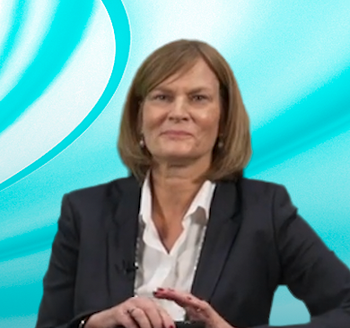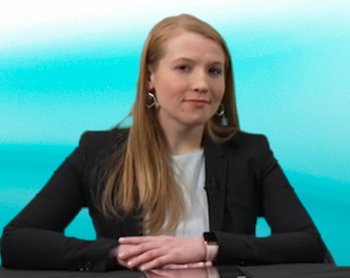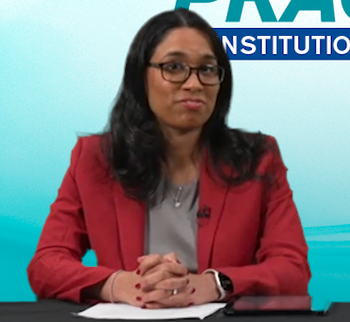Advancements in Treatment Strategies for HER2+ Metastatic Breast Cancer: Insights from Experts at the Duke Cancer Center

In this Cancer Network Around the Practice program, Susan Dent, MD discusses the case of a 66-year-old patient with grade 3 triple-positive breast cancer who presents with multiple liver and bone metastases after front-line treatment with trastuzumab and letrozole.

Susan Dent, MD, delves into the exploration of front-line treatment options for triple-positive breast cancer and examines strategies for restaging in the event of disease progression after first-line therapy.

Carey Anders, MD, and Susan Dent, MD, discuss the role of radiotherapy in patients with HER2-positive breast cancer and brain metastases.

Susan Dent, MD, delves into treatment approaches for triple-positive breast cancer in the second-line and beyond, highlighting findings from the DESTINY-Breast03 trial.

Heather Moore, CPP, PharmD, presents a comprehensive summary of targeted therapies for HER2-positive breast cancer and provides expert insights into the management of adverse effects associated with these treatments.

Carey Anders, MD, discusses the scenario of a 34-year-old patient diagnosed with HER2-positive breast cancer, who develops brain metastases after undergoing initial therapy with dual HER2 blockade.

Carey Anders, MD, examines strategies for treating stable and active brain metastases in individuals with advanced HER2-positive breast cancer, highlighting key data from the HER2CLIMB trial.

Carey Anders, MD, offers insights into the BRIDGET trial, a study investigating the role of tucatinib in the prevention of secondary brain metastases in patients with advanced HER2-positive breast cancer.

Heather Moore, CPP, PharmD, shares expert insights on the effective management of adverse effects related to tucatinib and other HER2 tyrosine kinase inhibitors (TKIs).

Heather Moore, CPP, PharmD examines the role of topical diclofenac gel in the management of hand and foot syndrome associated with capecitabine, highlighting key insights from the D-TORCH trial.

Rani Bansal, MD, discusses the case of a 54-year-old post-menopausal patient who develops liver and brain metastases after undergoing prior therapy with trastuzumab/pertuzumab and T-DM1.

Rani Bansal, MD, discusses progressive developments in treating brain metastases in HER2-positive breast cancer, highlighting insights from the TUXEDO and DEBORAH trials, and examines the potential role of T-DXd in managing leptomeningeal disease.

Rani Bansal, MD explores recent findings suggesting a risk of radiation necrosis in patients undergoing treatment with ADCs and concurrent radiotherapy for brain metastases and discusses the potential implications for future treatment approaches.

Heather Moore, CPP, PharmD, shares expert insights on managing T-DXd-related adverse effects, including prophylactic measures for nausea and strategies for monitoring and management of ILD.

The panelists conclude their discussion on HER2-positive breast cancer by underscoring the importance of preventive measures for brain metastases, enhanced strategies for managing leptomeningeal disease, and improved approaches to handle treatment-related toxicity.

Following SABCS 2023, Carey K. Anders, MD, reviews recent updates from the KATHERINE and APHINITY clinical trials in HER2+ breast cancer.

An expert on metastatic breast cancer provides clinical insights gleaned from the HER2CLIMB-02 trial and discusses the design and rationale of the ongoing HER2CLIMB-05 study.

An overview of the design and rationale for the phase 2 BRIDGET study looking at the addition of tucatinib to HER2-directed antibody therapy in breast cancer.

Carey K. Anders, MD, concludes with a look toward the future of HER2+ breast cancer treatment and provides advice to community oncologists treating patients with breast cancer.

Carey K. Anders, MD, spoke about updated findings in the HER2-positive breast cancer space, based on data from 2023 SABCS.







